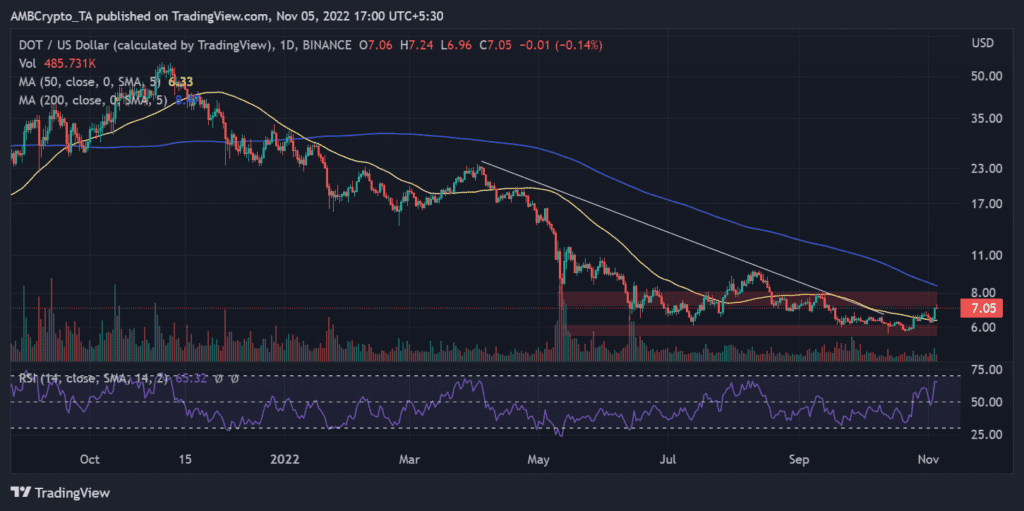Polkadot, in an out-of-the-ordinary tweet, stated that the DOT token, despite being marketed a security, was no longer a security. Instead, it had transformed into a software.
Polkadot’s native token (DOT), initially offered, sold and delivered to purchasers as a security, has morphed and no longer is a security. It is software. https://t.co/uv8wc1DbNb
— Polkadot (@Polkadot) November 4, 2022
In recent months, the crypto industry has been awash in uncertainty as a result of the regulatory body’s hazy views around cryptocurrencies. In some cases, like the one between the Security and Exchange Commission (SEC) and XRP, this sparked a full-scale legal battle. While in others, it has caused projects to re-evaluate their strategies.
Perhaps realizing the SEC might not catch on, the Web3 Foundation issued a public statement declaring that DOT wasn’t a security. To what do they attribute this conclusion, though?
_____________________________________________________________________________________
Here’s AMBCrypto’s Price Prediction for Polkadot [DOT] for 2022-2023
_____________________________________________________________________________________
Can the SEC hear us?
The Web3 Foundation acknowledged in a lengthy statement that they were aware that all coins given to investors would be securities. However, they were able to set up the structures that allowed the DOT token to transform into software. This was done through a number of meetings with the SEC.
In particular, the SEC’s Strategic Hub for Innovation and Financial Technology (FinHub). Both the items that were initially sold and the items that would be swapped had undergone this transformation.
Proponents of crypto assets have often cited the Hinman speech as evidence that cryptocurrencies are not securities. Yet, statements from Jay Clayton and Gary Gensler, former and current chairs of the SEC were at odds with one another.
The Howey test was another method for determining whether or not an asset was a security. However, its application has been contested in the past. Taking these into account, would future SEC administrations agree with Polkadot’s claim?
DOT bullish
A spike in the price of the DOT token indicated that it appeared to respond favorably to the most recent annoucement. On 4 November, the asset increased by almost 10%, according to a daily time frame analysis of DOT. It had lost less than 1% of its prior gains and was trading at roughly $7 as of 5 November.
Although a fresh support line appeared to be forming around the $6.2 area, the support was still mostly located between $6.1 and $5.5. On the daily time frame, the short MA, represented by the yellow line, had likewise changed from resistance to support.
The Relative Strength Index (RSI) line had crossed over the neutral line due to the recent price rise, as could be seen. This meant that at the time of this writing, the overall trend for DOT was bullish.
A clear direction needed
Thousands of cryptocurrencies are currently active, and many more are in the process of going live. Investors would be able to clearly identify the asset classes they are investing in and the assets they should avoid with a better regulatory framework.
Additionally, it might make it easier to identify dubious ventures and inspire more institutional investors to invest in the market.


